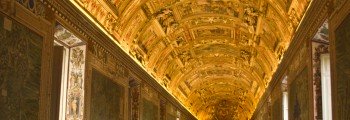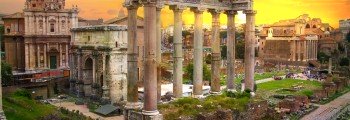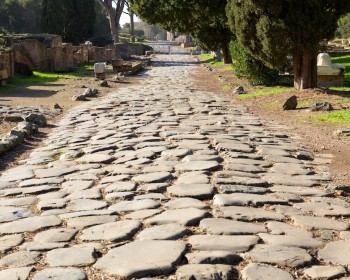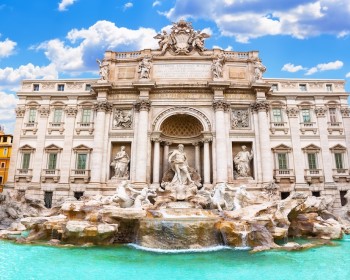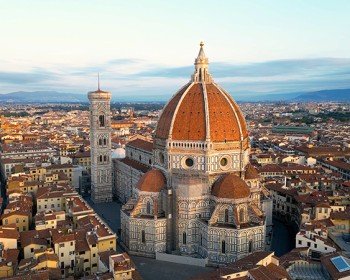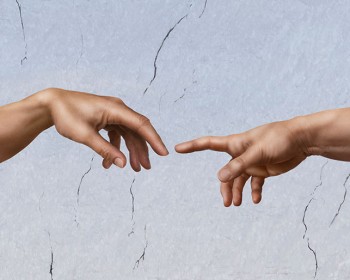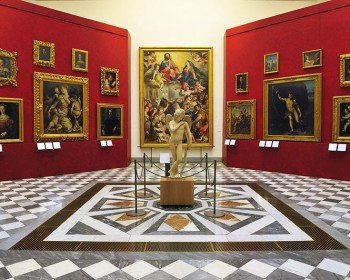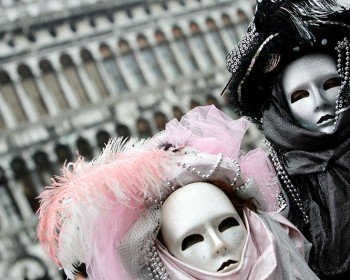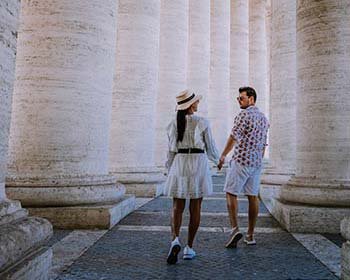Part 1: A quick summary of Opera music history
Anyone who wants to travel to Rome, or Italy in general, appreciates the warm and passionate attitude that Italy, along with its citizens, are, perhaps stereotypically, worldwide appreciated for.
Italy is almost entirely surrounded by the Mediterranean sea. This has lead to diverse immigration from the beginning of time and, thus, cultural variety across the Peninsula. The Etruscans, the Samnites and the Romans, the early Greek splendor’s influence, the latter Borbon’s, French heritage and even Austrian culture, has transformed Italy into a mix of its original Latin warmheartedness, with influences from Greek philosophy, culture and religion, the Etruscans’ revolutionary architecture, Austrian’s Enlightenment and countless other populations that have shaped Italy into the way it is now, the way we like it to be.
We all know that living in a country allows you to see its pros and its cons, which surely change from country to country, but each one has its own. Though what does a tourist need to know about Italy? Its historical, architectural, natural and overall its artistic beauties.
The latter is exactly what we are going to explore in more detail in this article.
New Orleans African Americans invented jazz, Anglo-Saxons invented rock, Andalusians invented Flamenco… and Italians invented the Opera.
What is the Opera and what are its origins?
Opera is an Italian word with Latin origins which means “work”, either laborious or artistic.
The musical term was first used in the 17th century, meaning "composition in which poetry, dance, and music are combined".
The musical piece, which appears to be the first opera ever written, was written by Jacopo Peri, and it’s called Dafne. The opera’s intent was to restore a Greek drama, where actors would sing and there would be music along with the story. Jacopo Peri belonged to a Florentine movement that was just one of the many which attempted to restore classical arts, giving birth to the Neoclassicist movement.
The sheets of Dafne are now sadly lost.
Although opera was mainly played at courts in its early stages, especially the Gonzaga court of Mantua, in the middle 17th century the Venetian theatre inaugurated an opera season, with the works of Monteverdi, the most influent opera writer of that time.
The most popular early operas were in the “opera seria” style, literally translated to serious opera. In this genre, comedy is mixed with elements from tragedy to create a somewhat jarring contrast, a controversial but popular Baroque artistic movement.
In direct contrast to the “opera seria”, there was the “opera buffa”, literally silly opera. It has its origins in Naples, from where it spread upwards to Rome and finally to northern Italy. A much more simple type of comedy, as the opera seria was mostly about gods and ancient heroes, keeping comedy present yet rare, opera buffa involved instead the predominant use of comic scenes, characters, and plot lines in a contemporary setting. Plus one of its lyrical characteristics was that it was often sung in dialects. It had a wider success until Romanticism took place in Europe, and a typical opera buffa, which is one of the most famous operas ever written, is Rossini’s Barber of Seville – the one about Figaro.
As with any other musical genre, opera is a constant development of style, as more and more talented composers contribute to its improvement and adapt it to the constantly new times and trends.
So as time passed, Rossini also introduced, along with Bellini, Donizetti, Pacini, Mercadante and many others, the concept of “Bel canto”, literally beautiful singing.
Although it probably has been the most appreciated improvement in the field of Italian opera music, I’d like to post a quote by Ffrancon-Davis, a Welsh Baritone, that I believe is still valid in most recent pop music: "Bel-canto is not a school of sensuously pretty voice-production. It has come to be a generally recognised thing that voice, pure and simple, by its very composition, or "placing", interferes with the organs of speech; making it impossible for a vocalist to preserve absolute purity of pronunciation in song as well as in speech. It is because of this view that the principle of "vocalising" words, instead of musically "saying" them, crept in, to the detriment of vocal art. This false position is due to the idea that the 'Arte del bel-canto' encouraged mere sensuous beauty of voice, rather than truth of expression."
Part 2: Where and when to go to see an opera concert in its motherland
The best cities in which to attend an opera concert in Italy are Rome, Florence, Venice, Milan, Bologna, Naples and Verona.
Let’s talk about some of them.
Rome, the Eternal city and capital city of Italy, has a really copious number of theatres where one can still attend many opera concerts.
As the opera started becoming a movement, the Pope banned it from Rome, so that Roman opera fans had to wait until the 19th century before being able to attend a concert in their city. The most prestigious Rome theatres are:
The Teatro Argentina, where the Barber of Seville had its debut. Right in the city centre, in the same square you can find ancient Roman ruins, used as a cats-hospitality centre now, a very big book and CD store, a famous typical restaurant, and the way to the Pantheon.
The Opera Theatre (Teatro dell’opera), built in the late 19th century, financed by a successful hotels-owner, is one of the most beautiful and important theatres in Italy. There, artists like Puccini, with his Tosca, had their debut.
The Accademia Nazionale di Santa Cecilia, one of the oldest music institutions in the world, established in the 1566. At first it was a music association for all the composers of the time, and later on it became a proper music academy, by now among Italy’s most prestigious.
Auditorium Parco della Musica, projected by the famous Italian architect Renzo Piano in 2002, these days the most trendy place to attend a concert in Rome.
Other valuable theatres in Italy worth mentioning are:
Teatro alla Scala di Milano, one of the most prestigious opera theatres in the world, built in Milan over the ruins of a church called Santa Maria alla Scala. Established in 1778, it attracts to this day people from all over the world because of debuts or exclusive concerts.
Gran Teatro la Fenice, in Venice, whose name, meaning Phoenix, symbolizes the rebirth of the taste for arts after the city’s many misadventures. “Deaths” so to speak. It was built in 1792 and was restored twice, its last restoration being in 2005.
Florence’s Teatro della Pergola, considered a historically very important theatre, for many scholars “The first prototype of the typical Italian-style theatre”. Its peculiarity is the innovation of the oval-shaped structure, which allows the acoustic performance to be heard much better by the audience.
Last, but most definitely not least, the Roman amphitheatre “Arena di Verona”, located in the north-eastern city of Verona, also famous for being the city of Romeo and Juliet.
The Amphitheatre has an unsure date of construction, however surely not later than the first century A.C.
At first it was mainly used as another famous Amphitheatre, the Rome’s Colosseum, as was common for Amphitheatres during the ancient Roman age.
Some interesting historical facts about it is that Napoleon Bonaparte, in 1805, visited it for a bull-fight, and he liked it so much that wanted it to be restored, as Verona was under France’s domination by that time.
It started being used as a concert arena just in the 19th century, and has become one of the most important concert venues in Italy since then.
Nowadays it hosts western (classical) music and operas constantly, and during summer, the Festival lirico areniano, Arena di Verona Opera Festival, to which attendance, for those who love opera, is a must. The festival is 104 years old, as it first performed Verdi’s Aida, celebrating its 100th birthday, in 1913.
Any visit to northern Italy should definitely include this wonderful historical monument, and incredibly performing acoustic concert hall.
For all those who really want to get to grips with Italian culture, a trip to the opera is a must-whichever city you choose to visit. Not only a wonderful evening out, a night at the opera is also a lesson in Italian history and culture past and present. You are sure to fall in love with this spine-chilling musical genre!
